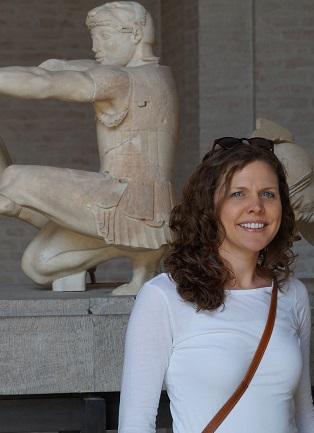Socially Re-Constructing the Late Roman City: Labor, Networks, Economy, and Narratives of Urban 'Decline
Visiting professor Elizabeth Murphy (Florida State University) reflects on the lecture series she gave over the fall.

The lecture series, entitled Socially Re-Constructing the Late Roman City: Labor, Networks, Economy, and Narratives of Urban 'Decline’, examined issues of work and labor in the late antique period (3rd – 7th centuries AD), through the archaeological record of worksites and work activities. It was designed to investigate urban trades and crafts people of this period in cities across Asia Minor, and to do so at multiple scales of analysis—from the socio-economic organization of society, to the city-scape, to the workshop, and to the artifact. The scalar organization of the series was intended to address one of the tenets of UrbNet, the investigation of large-scale urban evolutions through high resolution archaeology. The scope of the lectures also afforded the opportunity to touch on other central debates in the archaeology of Late Antiquity, particularly narratives of urban decline versus resilience and relating elements of continuity in everyday practices to widespread changes in urban organization. Due to recent coronavirus restrictions, the lectures transitioned to a fully online Zoom format, which proved particularly successful in reaching not only the UrbNet research community, but also international scholars from across Europe and North America.
On a more personal note, I wish to thank everyone here at UrbNet for their support of the series and for making my time in Aarhus so productive and rewarding. Even in these challenging and complicated times, it’s wonderful to see so much exciting research taking place at the Centre for Urban Network Evolutions.
